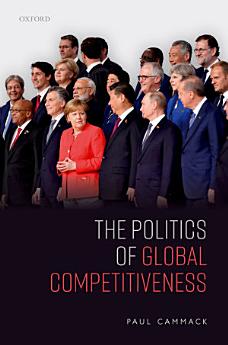The Politics of Global Competitiveness
feb 2022 · Oxford University Press
Libro electrónico
224
Páginas
family_home
Apto
info
reportLas calificaciones y opiniones no están verificadas. Más información
Acerca de este libro electrónico
Marx predicted in Capital (1867) that as capitalism became global, patterns of work would be transformed, and workers would need to develop versatility, flexibility, and mobility. This 'general law of social production', as he called it, is now in evidence all around us, in global value chains, 'zero hours' contracts, and contract work organised through digital platforms. It results from competition between capitalists, scientific and technological revolutions in production, and incessant advances in the division of labour as production processes are broken down into ever smaller steps. This book documents the leading roles of the Paris-based Organisation for Economic Cooperation and Development and the Washington-based World Bank as advocates of these developments. They do not, as generally supposed, simply represent the interests of the advanced economies or the 'West' and their transnational corporations. They promote a single global model of capitalist development, without limits and on a genuinely global scale. It calls upon all states to 'adjust' continually to the structural and social demands of competitiveness, which they see as essential to the global hegemony of capital over labour. The OECD and the World Bank propose policies that give girls and women equal access to education and paid work, reform welfare to 'make work pay', introduce flexible labour contracts that make 'hiring and firing' easier, focus education on skills that boost employability, and draw workers in the developing world from the 'informal' sector into the formal sector, where they can be more productive. This is the politics of global competitiveness.
Acerca del autor
Paul Cammack taught at the University of Manchester, Manchester Metropolitan University, and City University, Hong Kong, before retiring in 2015. His initial interest in Latin American and Third World politics developed into a broader focus on global political economy, and most recently on the politics of social reproduction. His main empirical interests are in politics of international organisations, which he addresses from a classical Marxist perspective.
Califica este libro electrónico
Cuéntanos lo que piensas.
Información de lectura
Smartphones y tablets
Instala la app de Google Play Libros para Android y iPad/iPhone. Como se sincroniza de manera automática con tu cuenta, te permite leer en línea o sin conexión en cualquier lugar.
Laptops y computadoras
Para escuchar audiolibros adquiridos en Google Play, usa el navegador web de tu computadora.
Lectores electrónicos y otros dispositivos
Para leer en dispositivos de tinta electrónica, como los lectores de libros electrónicos Kobo, deberás descargar un archivo y transferirlo a tu dispositivo. Sigue las instrucciones detalladas que aparecen en el Centro de ayuda para transferir los archivos a lectores de libros electrónicos compatibles.





